Jennifer Olbers
A Reef Resilience Network Manager’s Story
iSimangaliso Wetland Park, South Africa
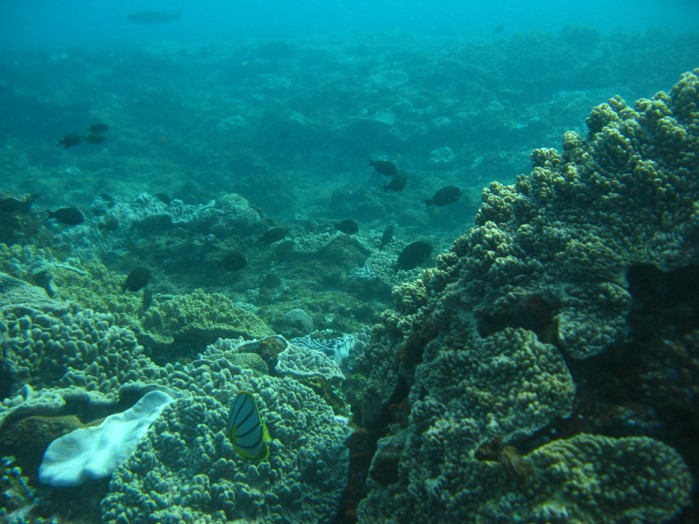
Marine life at Sodwana Bay. Photo © Jennifer Olbers
Saved from dune mining in 1999, the iSimangaliso Wetland Park covers 1,328,901 hectares and encompasses lakes, estuaries, swamp forests, coastal dunes, and pristine coral reef communities. iSimangaliso Wetland Park was South Africa’s first United Nations Educational, Scientific, and Cultural Organization (UNESCO) World Heritage Site. While it is known for its exceptional species diversity and scenic vistas created by a mosaic of landforms, the park faces threats from land conversation, conflicting land uses, and other pressures. Within the park lies Sodwana Bay, classified as one of the top dive sites in the world by the Professional Association of Diving Instructors (PADI), visited by approximately 35,000 scuba divers per year. The bay is home to numerous pelagic species of game fish and endangered species of sharks, rays, turtles, and fish.
Meet the Manager
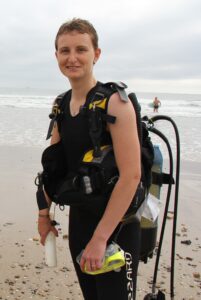
Jennifer Olbers SCUBA diving. Photo © Jennifer Olbers
Jennifer Olbers, Ezemvelo KZN Wildlife Marine Ecologist, monitors and manages marine ecosystems located in iSimangaliso Wetland Park with a focus on Sodwana Bay. After years of monitoring the marine communities of Sodwana Bay, Jennifer observed a shift in coral reef health and fish communities, sparking the need for long-term data to document these changes and inform management decisions into the future.
Reef Resilience Network Support
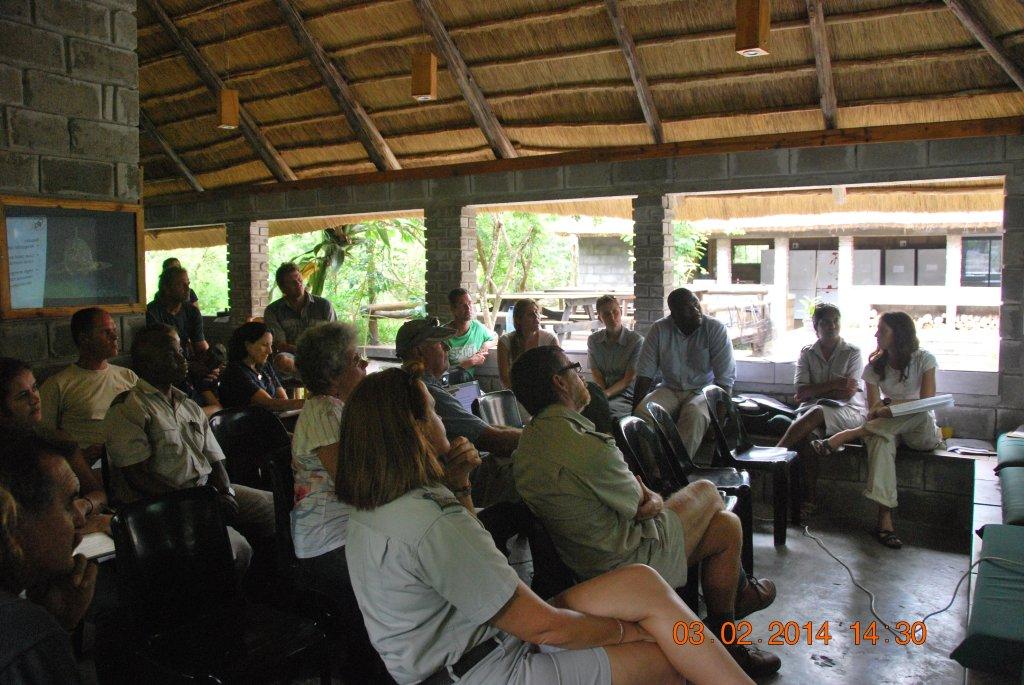
Reef Resilience Network training in Zanzibar. Photo © Jennifer Olbers
In 2013, Jennifer attended a Reef Resilience Network (the Network) training in Zanzibar to enhance her communication and facilitation skills to build stronger working relationships with local dive operators. She also attended the training to connect with other coral reef managers working in the Western Indian Ocean and learn about their regional challenges and management practices.
As part of the training, Jennifer completed a four-month long online course on reef resilience concepts. During the online course, Jennifer worked with coral reef experts and Network mentors to develop a coral bleaching response plan for South Africa. However, while drafting the bleaching response plan, she found there was an insufficient amount of data on the park’s coral reef ecosystems and redirected her efforts toward developing a reef resilience monitoring methodology. This led to the creation of the iSimangaliso Reef Resilience Program, which aimed to document long-term trends of how reefs in the park are changing spatially and temporally and to determine the most resilient sites within the monitored areas. With the continued support and feedback from coral reef experts and mentors, Jennifer developed a monitoring methodology for the park that is relatively easy to implement, focuses on specific criteria to ensure data collection is consistent, and requires little time commitment.
“Natural impacts are more extreme than they used to be. The reefs are being beaten more often with big swells, the average water temperatures are higher, and the minimum temperatures are lower. The corals are showing increased indications of stress.”
—Jennifer
Successes and Next Steps
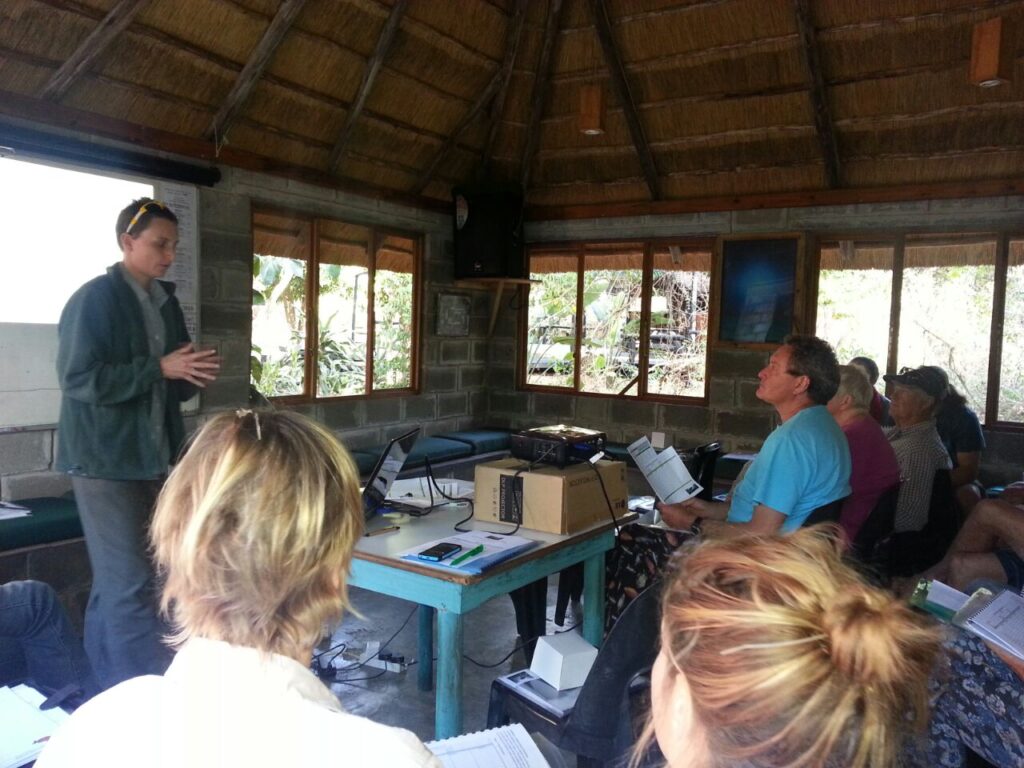
Jennifer presenting during a Reef Resilience workshop in South Africa. Photo © Jennifer Olbers
After the training, Jennifer received a seed funding grant from the Network to coordinate and facilitate two monitoring method training workshops for local dive operators and launch the iSimangaliso Reef Resilience Program. The iSimangaliso Program is a citizen science project involving nine dive operators who volunteer to collect data in Sodwana Bay using the reef resilience monitoring methodology Jennifer developed with experts during the training.
During the workshops, Jennifer introduced local dive operators to reef resilience concepts and supplied them with a monitoring methodology manual and the necessary materials and equipment for data collection. Prior to these workshops, conservation and park staff found it challenging to gain the trust and support of local dive operators. By inviting the dive operators to participate in these workshops and involving them in park management, relationships began to improve, and trust started to build.
“Working with the dive operators became much easier because of the communication and facilitation skills I learned from the Reef Resilience Network training.”
—Jennifer
By utilizing the tools and resources from the Network training, Jennifer was able to improve relationships with dive operators and increase their willingness to collaborate on park projects. In order to move the iSimangaliso Reef Resilience Program forward, Jennifer began working with the Park Management Authority on the 2018–2019 operator contract to include a clause that ensures the iSimangaliso Reef Resilience Program is implemented by dive operators. By providing support and guidance to the Park Management Authority during the development of this clause, Jennifer helped establish a formal mechanism to collect sufficient data on Sodwana Bay coral reef ecosystems and involve dive operators in marine resource management.
Jennifer is currently working for WILDOCEANS, a program of WILDTRUST, as a Senior Marine Conservation Scientist. The WILDTRUST works to protect biodiversity and build socio-ecological resilience in southern Africa and the Western Indian Ocean. Jennifer supports two shark and ray projects, one on improving policy and legislation in South African marine waters and another focused on creating sanctuary areas to protect critical habitats for shark and rays. In her current work, Jennifer uses her facilitation and workshop planning skills, such as “ice breaker” exercises and developing process agendas to guide discussion, that she learned in the Network training. These skills have proved invaluable to her work.
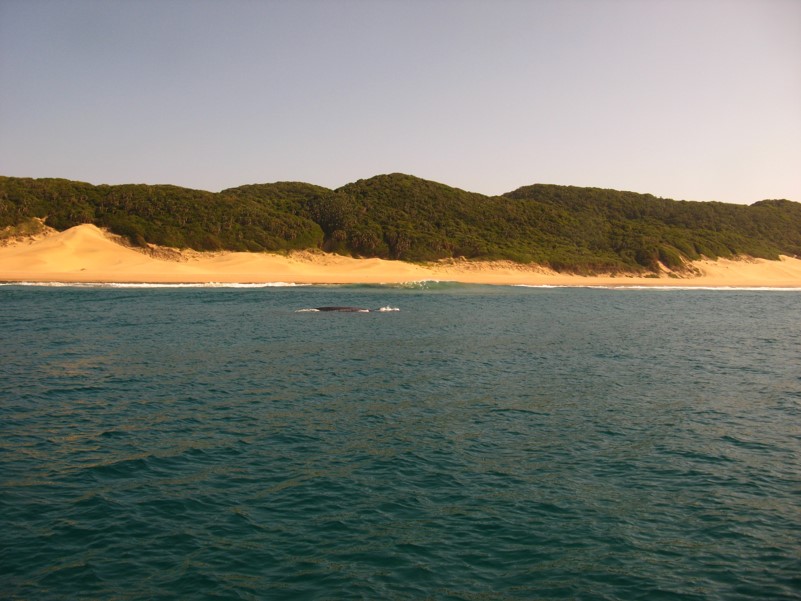
Sodwana Bay. Photo © Jennifer Olbers
